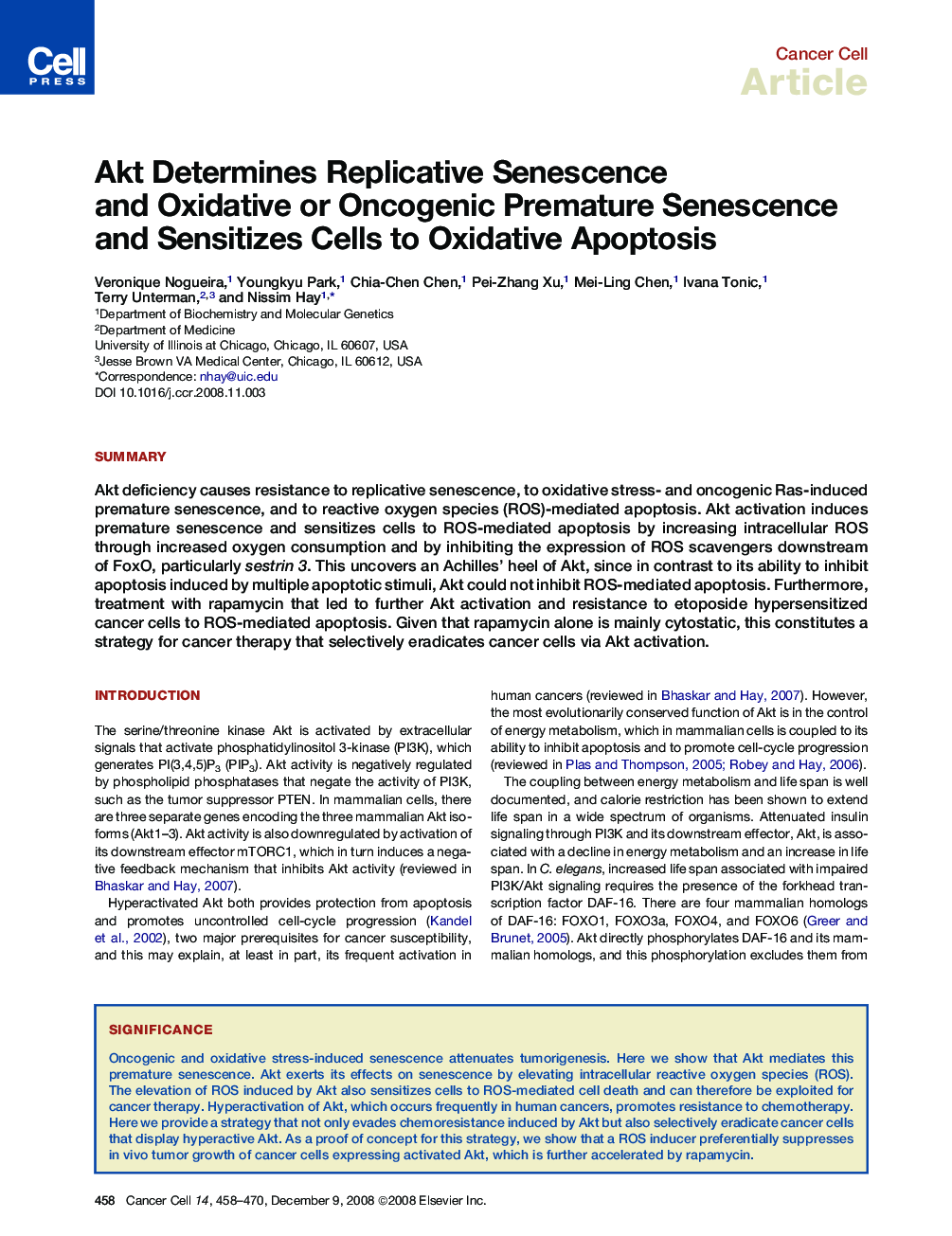| Article ID | Journal | Published Year | Pages | File Type |
|---|---|---|---|---|
| 2107936 | Cancer Cell | 2008 | 13 Pages |
SummaryAkt deficiency causes resistance to replicative senescence, to oxidative stress- and oncogenic Ras-induced premature senescence, and to reactive oxygen species (ROS)-mediated apoptosis. Akt activation induces premature senescence and sensitizes cells to ROS-mediated apoptosis by increasing intracellular ROS through increased oxygen consumption and by inhibiting the expression of ROS scavengers downstream of FoxO, particularly sestrin 3. This uncovers an Achilles' heel of Akt, since in contrast to its ability to inhibit apoptosis induced by multiple apoptotic stimuli, Akt could not inhibit ROS-mediated apoptosis. Furthermore, treatment with rapamycin that led to further Akt activation and resistance to etoposide hypersensitized cancer cells to ROS-mediated apoptosis. Given that rapamycin alone is mainly cytostatic, this constitutes a strategy for cancer therapy that selectively eradicates cancer cells via Akt activation.
